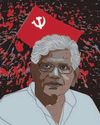Delhi grapples with its season of smog, as an unprepared Centre and state look for solutions

Spring, summer, monsoon, autumn and winter. The standard seasons of Delhi. Over the past few years, however, another one has crept in between fall and winter—pollution. And Diwali is when it peaks. This year, the morning after the festivities, a cloud of smog blanketed the capital. The levels of PM10 in the air spiked to four-digit figures, which even the pollution monitoring machines could not read. They max out at 999 micrograms per cubic metre. The PM 2.5 count was just shy of the 999 mark.
The people of Delhi had flouted the Supreme Court’s guidelines on the festivities and had burst crackers well into the night. “We have registered cases against 75 offenders flouting the firecracker norms,” said Delhi Environment Minister Imran Hussain. “Fines of 14 lakh were imposed on several other citizens indulging in sale of firecrackers or bursting loud bombs. But this is not a final solution as we can all see.” Said Delhi Health Minister
Satyendar Jain: “Admittance of emergency patients has more than tripled at most major government hospitals. This is an alarming situation for all chest specialists. It might be helpful if all of us restrict our outdoor activities to a bare minimum in these days.”
The politics of pollution
Last month, pollution levels in Delhi started to peak, partly because of stubble burning in Punjab and Haryana. This led to a political slugfest. Delhi Chief Minister Arvind Kejriwal blamed the state governments for doing nothing. The Delhi government wrote to the two states, urging them to take preventive action against stubble burning. This year, in the Union budget, Finance Minister Arun Jaitley had initially earmarked 500 crore, which the cabinet increased to 1,150 crore, to fund a two-year plan to provide farmers machinery at subsidised rates for infield management of crop residue.
Bu hikaye THE WEEK dergisinin November 25, 2018 sayısından alınmıştır.
Start your 7-day Magzter GOLD free trial to access thousands of curated premium stories, and 9,000+ magazines and newspapers.
Already a subscriber ? Giriş Yap
Bu hikaye THE WEEK dergisinin November 25, 2018 sayısından alınmıştır.
Start your 7-day Magzter GOLD free trial to access thousands of curated premium stories, and 9,000+ magazines and newspapers.
Already a subscriber? Giriş Yap

Themes Of Choice
As Savvy Investors Seek New Avenues, Thematic Mutual Funds Are Gaining Popularity

A golden girl
One of India's most formidable beauties passed away earlier this month. The odd thing is she would absolutely hate this obituary; she hated being written about and avoided publicity for all of her nine decades. Indira Aswani was 93 when she died. But anyone who encountered her, even briefly, was in such awe of her grace and poise, and one could not but remember her forever.

The interest in wine is growing delightfully in India
The renowned British wine writer and television presenter Jancis Robinson, 74, recently came to Delhi and Mumbai to reacquaint herself with India's wine industry. This was the Robinson's fourth visit to India; the last one was seven years ago. On this trip, Robinson and her husband, restaurateur Nicholas Lander, were hosted by the Taj Hotels and Sonal Holland, India's only Master of Wine.

United in the states
Indian-Americans coming together under the Democratic umbrella could get Harris over the line in key battlegrounds

COVER DRIVE
Usage-driven motor insurance policies offer several benefits

GDP as the only measure of progress is illogical
Dasho Karma Ura, one of the world's leading happiness experts, has guided Bhutan's unique gross national happiness (GNH) project. He uses empirical data to show that money cannot buy happiness in all circumstances, rather it is family and health that have the strongest positive effect on happiness. Excerpts from an interview:

India is not a controlling big brother
Prime Minister Tshering Tobgay considers India a benevolent elder sibling as the \"big brotherly attitude\" is happily missing from bilateral ties. He thinks the relationship shared by the two countries has become a model of friendship not just for the region, but for the entire world. \"India's attitude is definitely not of a big brother who is controlling and does not allow the little brother to blossom and grow,\" says Tobgay in an exclusive interview with THE WEEK.

Comrade with no foes
Lal Salaam, Comrade Yechury-you were quite a guy!

Pinning down saffron
In her first political bout, Vinesh Phogat rides on the anti-BJP sentiment across Haryana

MAKE IN MANIPUR
Home-made rockets and weapons from across the border are escalating the conflict